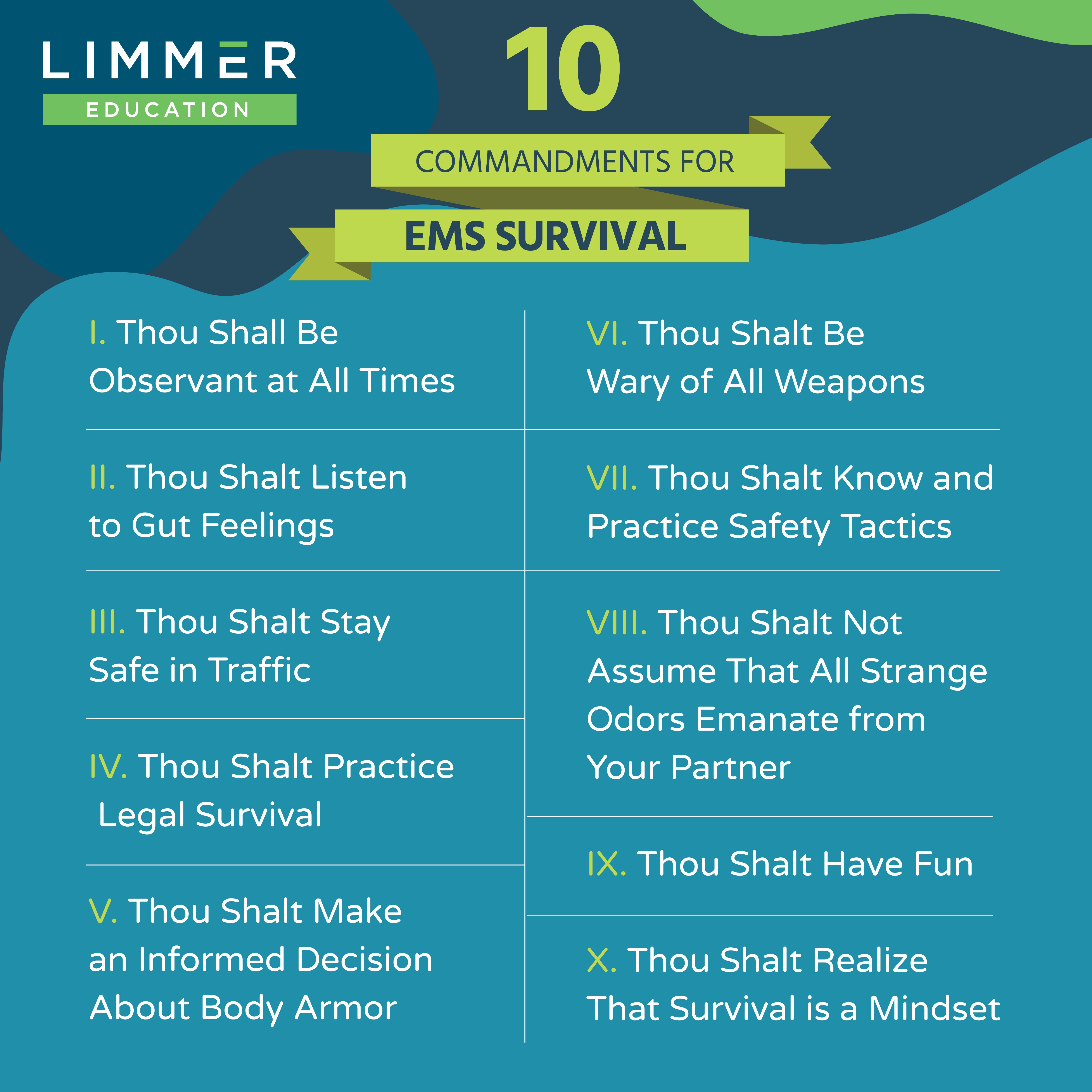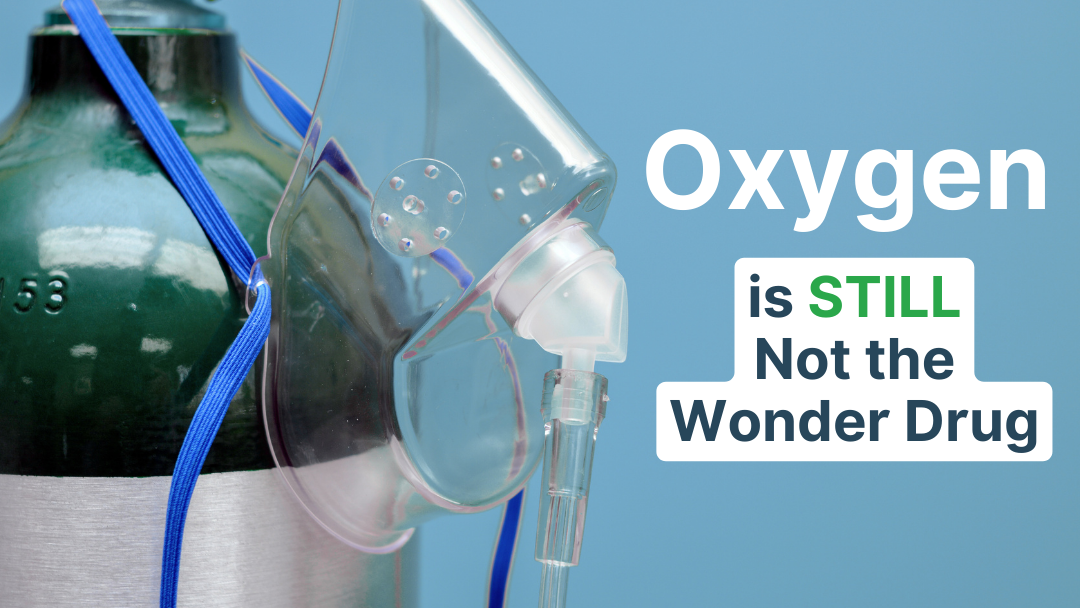10 Commandments for EMS Survival

by Dan Limmer, BS, NRP
Our articles are read by an automated voice. We offer the option to listen to our articles as soon as they are published to enhance accessibility. Issues? Please let us know using the contact form.
It was in the early 1990s when I wrote Ten Commandments for EMS Survival. Never did I believe it would get the exposure it has.
In the past 20+ years. It was first presented at a great little conference in Binghamton, NY run by Bill Loller. They even made t-shirts out of it. As a matter of fact, that was my first conference presentation ever.
It was my experience as a police officer and paramedic that caused me to write those commandments--commandments that are still applicable more than 20 years later. I'd like to take a moment to explain what I meant by each of the commandments. I hope they help you to stay safe in what seems to be an increasingly crazy world.

I. Thou Shall Be Observant at All Times
I believe that the key to staying safe in any public safety profession is observation. This is the key to prevention. Any time violence can be prevented it is exponentially better than having to deal with it directly.
II. Thou Shalt Listen to Gut Feelings
Gut feelings are something that should always be listened to. Bill Loller gave me a copy of Gavin de Becker's The Gift of Fear. De Becker believes we all have the ability to receive the clues of danger, which may come as gut feelings. The issue is in our listening to them and our response.
III. Thou Shalt Stay Safe in Traffic
Car crashes have killed more EMS providers every year than violence (9/11/2001 excluded). They may be responding to the scene or the hospital, or while on foot at a scene. We can reduce this risk dramatically.
IV. Thou Shalt Practice Legal Survival
People say that they key to preventing liability is documentation. I disagree. Documentation helps after you get sued. Treating people the way you want your grandmother treated is the best way to prevent liability hands down.
V. Thou Shalt Make an Informed Decision About Body Armor
This seemed a bit of a stretch to some in 1990. Not as much now. I'm not saying everyone should wear it, but you should know what body armor can and can't do to make the best decision. If you do decide to buy the body armor, wear it. It does no good in the rig.
VI. Thou Shalt Be Wary of All Weapons
Gun violence is in the news every day. Guns even make their way into our schools and malls. Guns are lethal. No doubt about it. But so are knives, pipes, bats, and cars. Be wary of them all.
VII. Thou Shalt Know and Practice Safety Tactics
If prevention doesn't work, you will need to know some options--and fast. You'll be under stress so they should be simple and effective. Know about cover, concealment, and retreat as a baseline. Other defensive tactics above that are gravy.
VIII. Thou Shalt Not Assume That All Strange Odors Emanate from Your Partner
I wrote this because of drug labs. It applies to some terrorist devices as well. Smell is a strong sense but not always considered. Use it.
IX. Thou Shalt Have Fun
I believe that more people leave EMS because of politics and work B.S. than bad calls. What could prevent that? Having fun. Stick together, laugh together. It keeps you in the game and makes each day go better.
X. Thou Shalt Realize That Survival is a Mindset
More than observation, more than tactics, you need to believe that you can do it. That you will survive. Right now this seems sterile and distant but when you are fighting for your life the single biggest thing you can do is be committed to survival. Everything else flows from that.
The good news is that most days you won't need these 10 commandments. But when you do, you'll need them badly. I hope I was able to give you some information to help you. Share them with friends and colleagues. Although it has been more than 20 years since I wrote these, I'm still teaching them--and will be far into the future.
There is really nothing more important than surviving.
Related articles

Limmer Education

Dan Limmer, BS, NRP


